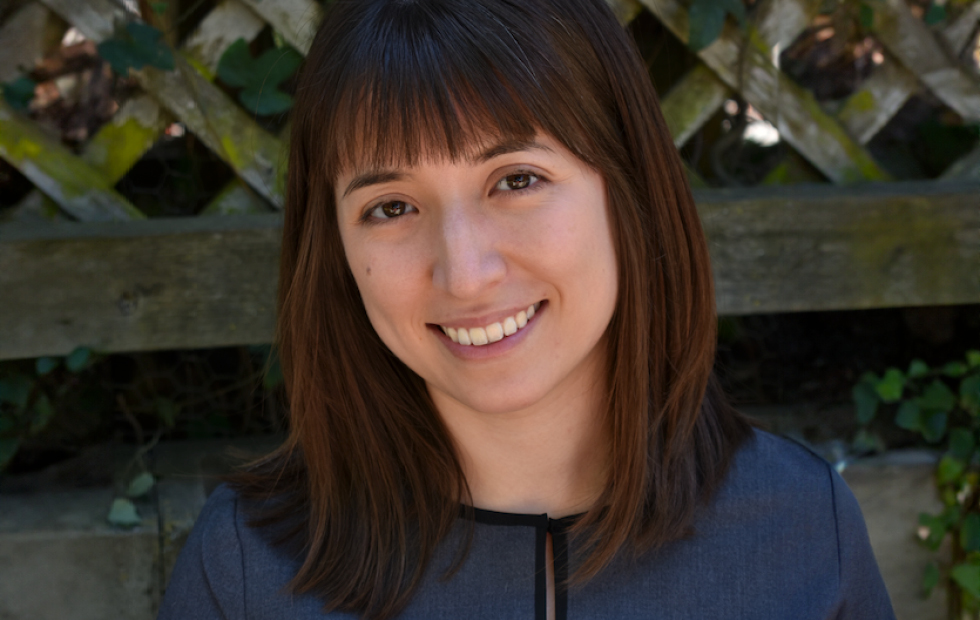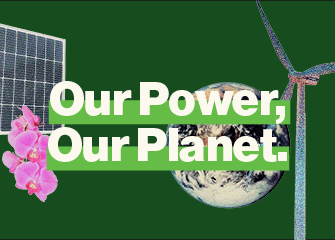December 6, 2023
Communication Is Key for Community Energy, Climate Action

By Richelle Tanner, Ph.D., Assistant Professor & Program Director of Environmental Science & Policy at Chapman University
Community choice aggregation agencies like the Orange County Power Authority can provide many benefits for residents and businesses, including more equity in preserving our environment, mitigating climate change, and offering clean power at competitive rates.
But if the benefits of community choice aggregation and the need for all of us to do our part to combat climate change are not effectively communicated, many communities may not understand why and how they can be part of this larger solution.
The reality is that scientific topics can seem unapproachable to the public given their complexity and nuanced detail. And scientists themselves do not help if they insist on digging into the complex granularity of every topic.
Effectively communicating complex topics such as climate change does not require understanding every single detail, but rather, an understanding of how our common cultural values are related to these scientific and social issues. It also requires a reliance on hopeful emotions, not a focus on the doom and gloom of climate consequences.
My research group, the Socio-Ecological Adaptation and Climate Resilience (SEACR) Lab, focuses on how distinct components of strategic communication (trust, language and the role of social capital in decision-making) can empower communities that have historically not participated. These communities are as diverse as Black, Brown, and Asian urban immigrant communities, rural hunting clubs, informal educators at zoos and aquariums, and young adult climate activists.
Metaphoric language is a way to present scientific topics accurately but without making them too confusing, such as the tested tools provided by the Frameworks Institute.
One of the earliest and more effective examples was using a heat-trapping blanket around our earth as a metaphor for global warming.
There are also certain values that generally resonate well with all communities, including the overall importance of protecting the environment, responsibly managing resources and environmental stewardship. Our work has proven these values to be strong in many audiences, especially across three additional studies within California.
But other values and messages need to be tailored to specific communities, with economic and cultural factors that are often specific to those communities.
One metaphor – explaining ocean acidification by comparing it to the bone disease osteoporosis – tested really well among middle-aged, English-speaking, middle-class communities, but would not be as applicable for other age groups or diverse communities.
Generally speaking, metaphors do not translate well into other languages because they rely on cultural understandings, including folk tales and regional sayings.
Right now, we are working on tailored messaging for specific communities, focusing on cultural values unique to each community, along with generational and other differences, to bring more people into the conversation for community-level solutions. We are also working to engage with non-English speaking communities, partnering with multicultural groups to build our understanding of cultural values and communication styles.
This past year, we have deployed educational programming to improve environmental literacy among Mandarin and Spanish speaking residents in Orange County, including hosting events at local beaches about the importance of protecting our coastal ecosystems against climate change through local advocacy for green energy solutions.
There are also different metaphors and messages that work with different generations.
For example, we have tailored messages speaking to the mechanisms of wildfire spread distinctly to reach different generational audiences, with slight variations matching well with Baby Boomers and Generation Z audiences.
Improving the environmental literacy of our communities means better understanding not just what language may resonate best, but also identifying and using the best messengers to convey that information. Ironically and importantly, this means leaving ourselves (scientists and other governmental officials) out of the conversation – learning from friends and neighbors is much more impactful.
We expect more data in the coming months and years to continue to hone in on the best language use and messengers for different audiences when it comes to motivating climate action. We are especially focused on how we can help improve access to information for underserved communities most impacted by climate change.
As we continue to strive to best communicate about community energy to our neighbors, co-workers and friends, we know of one motivator for change that can resonate with all: Hope.
About Orange County Power Authority
The Orange County Power Authority is a not-for-profit public agency that offers clean power at competitive rates, significantly reducing energy-related greenhouse emissions and enabling reinvestment in local energy programs. To learn more, visit www.ocpower.org.
Related Stories

April 1, 2025
Global Earth Day 2025 Action Starts Here In Orange County
Each Earth Day focuses on a new theme to bring global attention to the most pressing environmental issues....

March 27, 2025
Student Artwork Spotlight: Picturing a Better Tomorrow Art Contest
At Orange County Power Authority (OCPA), we believe a cleaner, greener future starts with bold ideas—and our youngest...

March 3, 2025
Q&A: Pranesh Venugopal, Orange County Power Authority Energy Programs Manager
Pranesh Venugopal joined Orange County Power Authority (OCPA) as Energy Programs Manager in November 2024, bringing with him...




